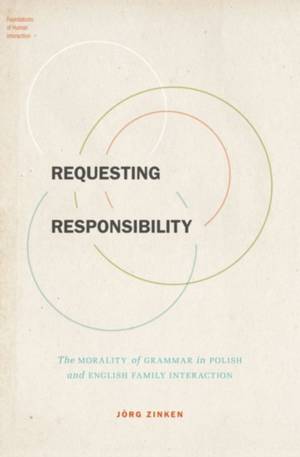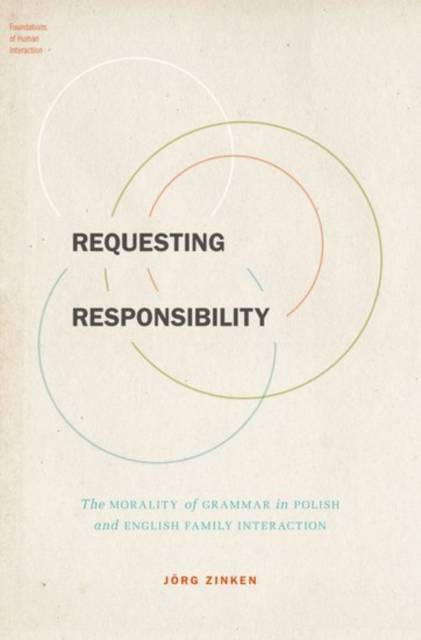
- Afhalen na 1 uur in een winkel met voorraad
- Gratis thuislevering in België vanaf € 30
- Ruim aanbod met 7 miljoen producten
- Afhalen na 1 uur in een winkel met voorraad
- Gratis thuislevering in België vanaf € 30
- Ruim aanbod met 7 miljoen producten
Requesting Responsibility
The Morality of Grammar in Polish and English Family Interaction
Jorg ZinkenOmschrijving
This book examines requests for action in everyday contexts by analyzing natural video-recorded data of everyday interaction in British English and Polish families. Requests for carrying out little jobs-passing some object or fetching items from the next room -are pervasively relevant in contexts such as preparing and consuming food, caring for and playing with children. Requests therefore provide a useful window onto general qualities of human sociality as well as on aspects of cultural diversity. Jörg Zinken describes features of interactional context that people across cultures might be sensitive to in designing a request. In particular, the other person's locally observable commitment to a shared task emerges as a quality of context that systematically enters into the way a speaker builds a request. He then analyses the relationship between diversity across the grammatical resources of languages, and diversity in the action affordances provided by these structures. Focusing on grammatical structures that exist in Polish but not in English (impersonal deontic statements, a certain type of double imperative, and a grammaticalized distinction between perfective and imperfective verbal aspect), the analyses show that language-specific turn formats can index and project social orientations within the on-going interaction in culture-specific ways. By examining social actions at a fine level of grain, the book points a way toward an understanding of cultural diversity that avoids the pitfalls of cultural relativism.
Specificaties
Betrokkenen
- Auteur(s):
- Uitgeverij:
Inhoud
- Aantal bladzijden:
- 272
- Taal:
- Engels
- Reeks:
Eigenschappen
- Productcode (EAN):
- 9780190210724
- Verschijningsdatum:
- 6/07/2016
- Uitvoering:
- Hardcover
- Formaat:
- Genaaid
- Afmetingen:
- 155 mm x 239 mm
- Gewicht:
- 544 g

Alleen bij Standaard Boekhandel
Beoordelingen
We publiceren alleen reviews die voldoen aan de voorwaarden voor reviews. Bekijk onze voorwaarden voor reviews.











